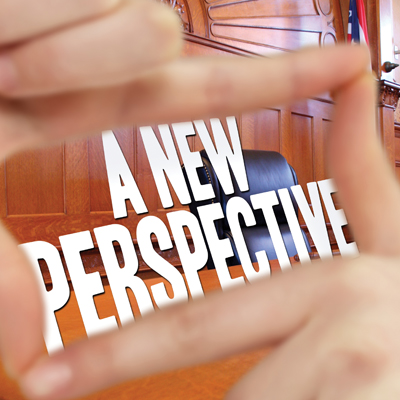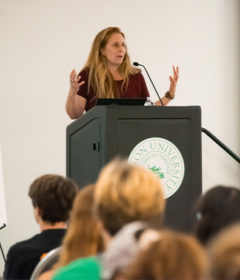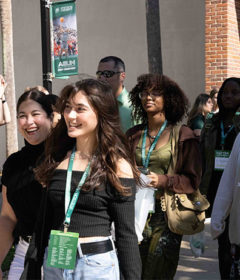A New Perspective

Every Tuesday and Thursday morning, students in Professor Robert Batey’s spring seminar class at Stetson University College of Law in Gulfport, Fla., crack open their books to discuss the latest assigned readings. It is a typical law school seminar, except instead of pouring over case law, Professor Batey’s students are reading Kafka and watching Spike Lee’s Malcolm X.
“The course draws people who are natural readers, and hungry to read something more than cases and textbooks,” Batey said. Professor Batey explained that through the lenses of film and pages of classic fiction and philosophy, students get another perspective on crime and the social response to crime. “Literature and film create a textured setting for dealing with ethics and jurisprudence,” Professor Batey explained. “The focus in a standard course is on teaching doctrine. This kind of course is more about thinking what criminal law is intended for and how different actors in legal systems play their roles.”
Professor Batey’s course in Law, Literature & Film began in 1992 as part of a winter term cross-disciplinary program on the Stetson University campus in DeLand. He initially co-taught the course with the late Professor Michael Raymond for undergraduates.
In 1993, the first course in law and literature on Stetson Law’s Gulfport campus was offered as a two-hour seminar. Interest in the intersection of law and literature had expanded in the 1980s into course offerings across the country, Professor Batey explained. Scholars like Richard Weisberg, author of The Failure of the Word: The Protagonist as Lawyer in Modern Fiction, and James Boyd White, who wrote The Legal Imagination, had helped incubate an interest. The course at Stetson Law later developed into a popu lar three-hour course with the addition of film, to complement the reading assignments.
Professor Ann Piccard, an English Literature major in college who studied international human rights at the University of London, also teaches the course at Stetson. “The Law, Literature & Film seminar allows students to focus on a theme that might be fiction but that has very real applications and implications in the law. There are endless possibilities, and students are not limited in choosing their topics,” Professor Piccard said. “Writing a seminar paper for this class might be a completely different experience from writing for a more traditional seminar, because literature and film know no limits.”
Read this article in full, as well as other interesting articles in SU Magazine, Summer 2012.
by Brandi Palmer
Manager of Media Relations, College of Law



